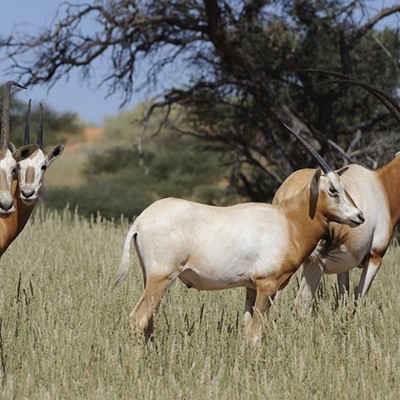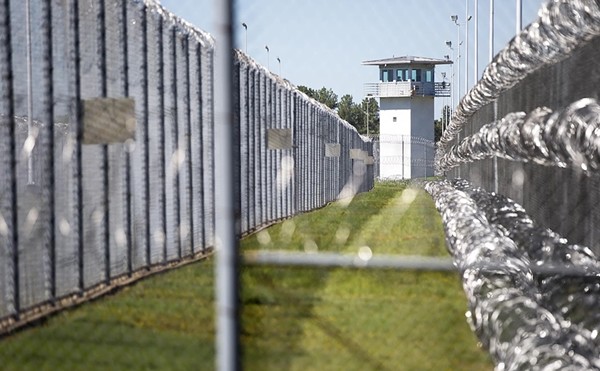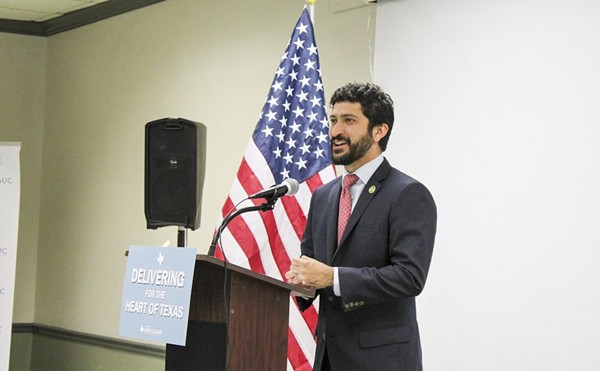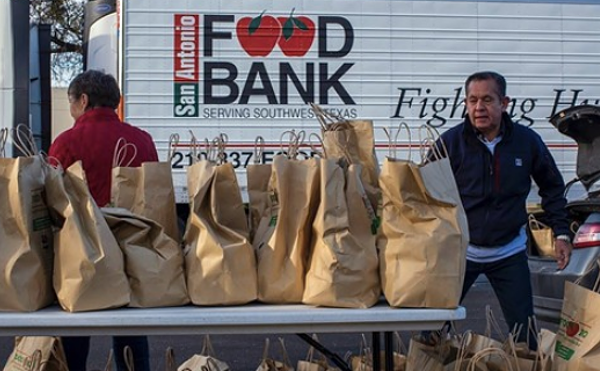At a certain point, sustained ignorance becomes so “willful” that it becomes criminal. Texas' leadership is approaching that territory now in its campaign to deny its responsibility to regulate the gases that are destabilizing the planet and projected to cause untold human suffering especially in developing parts of the world.
In late July, a paper by a Princeton team of researchers suggested that climate-induced crop failures in Mexico could force one in 10 residents of that country to flee to the United States as climate refugees in coming decades. A week later, Texas joined a second lawsuit seeking to stop greenhouse regulation from coming to the Lone Star State.
Attorney General Greg Abbott and Bryan Shaw, chairman of the Texas Commission on Environmental Quality, wrote to the U.S. EPA that Texas has no intention of regulating greenhouse gas emissions like carbon dioxide, which the pair refer to as a “trace constituent of clean air, vital to all life, that is emitted by all productive activities on Earth.”
Of course, water's a wondrous constituent too, until mudslides sweep your house and family away.
 Until eclipsed by China earlier this year, the U.S. has reigned as the world's largest emitter of climate-destabilizing greenhouse gases (we're the purple; China's lavender). When considered its own country, Texas itself regularly ranks among the top ten global greenhouse emitters.
Until eclipsed by China earlier this year, the U.S. has reigned as the world's largest emitter of climate-destabilizing greenhouse gases (we're the purple; China's lavender). When considered its own country, Texas itself regularly ranks among the top ten global greenhouse emitters.
Now, with a large chunk of the nation feverish over immigration, a team of three professors at the Woodrow Wilson School for Public and International Affairs at Princeton University projects that warming-related agricultural failure brought on by could force millions of Mexican residents streaming toward the United States in search of relief as climate refugees.
Depending on the severity of crop losses, between 1.4 million and 6.7 million people would migrate to the United States by 2080. At the high end, that would represent a doubling of the current number of Mexican nationals already living and working in the United States. And, yet, the team's numbers are likely low considering expected crop losses from climate change “are considerably larger” than those observed between 1995 and 2005, the years from which data was derived for the study's methodology, the report concludes.
Of course, there could be a massive, rapid, international climate response that makes this whole conversation moot. But judging from the non-progress so far, it's not likely.
Some fear the anti-migrant soundbites the Princeton report could inform.
"It would behoove them as scientists to shift their focus," Lorenzo Cano, associate director of the Center for Mexican American Studies at the University of Houston, told Nature recently. "`This is` research that will contribute to the xenophobia that is already running amok in our country today."
 Michael Oppenheimer, professor of geosciences and international affairs at Princeton University, said “a misinterpretation of the message” of the study could suggest the authors are opposed to immigration. “We're not taking any position on whether migration or immigration are good, bad, or indifferent, we're simply trying to state the numbers and we certainly would not want this used as a club against the immigrant population.”
Michael Oppenheimer, professor of geosciences and international affairs at Princeton University, said “a misinterpretation of the message” of the study could suggest the authors are opposed to immigration. “We're not taking any position on whether migration or immigration are good, bad, or indifferent, we're simply trying to state the numbers and we certainly would not want this used as a club against the immigrant population.”
Certainly, if left unchecked, the thugish political discourse and spread of border vigilantes in the U.S. leaves little question as to whether these victims of industrialization would be treated as refugees or criminals when they arrive. However, the faster we move beyond our low-intensity border conflict and move forward on bi-national efforts to turn our shared land into a hub of clean-energy development and wise water and agricultural practices ever mindful of our shared human rights the better off we'll all be.
And academic research can propel such policy responses, says (son-of-an-immigrant) Oppenheimer.
“Our real motivation is to provide a scientific basis so that policy makers can make decisions that in a warming world will make people's lives easier. It doesn't pay to put your head in the sand and pretend this isn't gonna happen,” Oppenheimer said. “The more that policy makers know about it, the more that individuals know about it, the more likely it is they can take action that either reduces the need to migrate, by reducing emissions or by improving adaptation capacity so people can stay where they are, or, if they have to move or want to move, to facilitate that movement so it doesn't create violence and it doesn't impact people in the receiving country in a negative way.”
As the hottest decade on record closes, and Texas' juvenile argument against the prevailing science of climate change is debunked (read the EPA's “myths and facts”), climate-action obstructionists like Abbott, Shaw, and Texas Governor Rick Perry should do some serious soul-searching and start looking beyond the perceived economic impact greenhouse regulation would have on Texas and consider the larger human toll not acting represents for the world's poorest. It won't only be Mexico's farmers impacted by our choices. Other flashpoints referenced in the Princeton paper (and elsewhere) include Africa, India, Bangladesh, (all of) Latin America, and Australia.
“The human race is in the middle of a great transition in terms of the way it views its role on the planet and its responsibility for the planet,” Oppenheimer told the Current. “The climate problem is one of those issues, and the human race is going to wrestle with it and eventually get on top of it. But I don't think it will make the world unlivable as long as we act accordingly.”
There's that word "act" again.
















